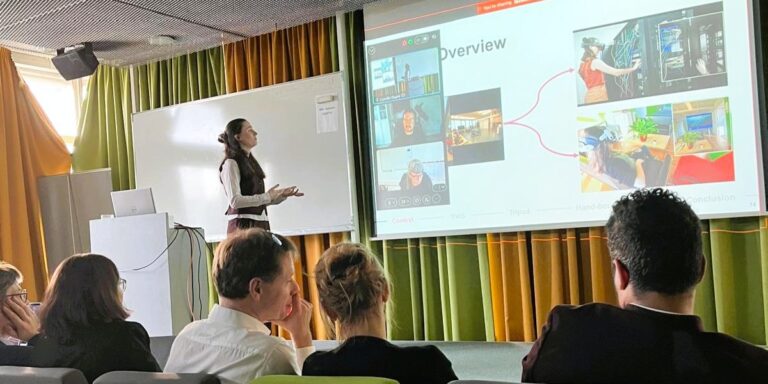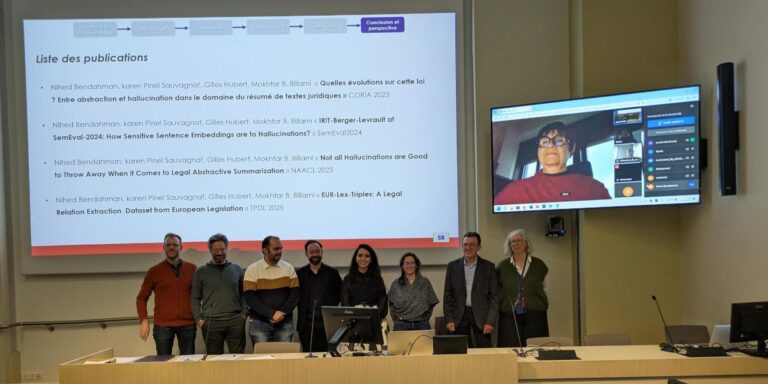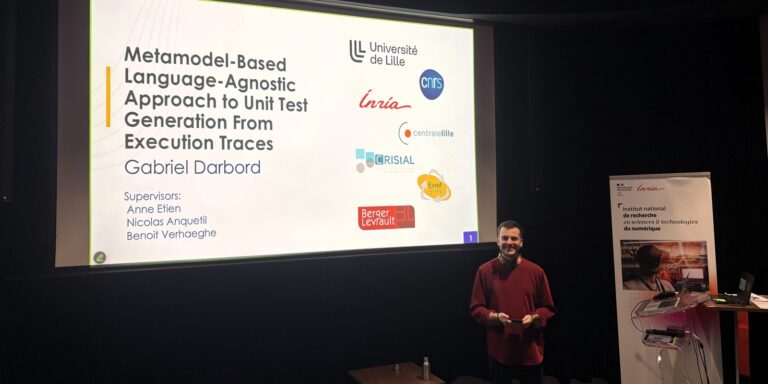Explore our projects & studies
Explore our projects & studies
From Artificial Intelligence to Human-Computer Interaction and Software Architecture, our research team tackles complex problems across many domains. We seek at providing the best of modern technology for public services, health-care and industry.

Angular or React: Which One Consumes Less Energy?
When developers choose a frontend framework, the usual criteria come to mind: performance, ecosystem, maintainability, developer experience, and community support. But there is a factor that is almost never discussed: energy consumption! As software systems grow in scale, the environmental impact of digital technologies is becoming impossible to ignore. While

Financing Long-Term Innovation: A Strategic Lever for Research at Berger-Levrault
A Strong Commitment to Innovation As a leading industrial company in the field of software and digital services for local authorities and public-sector stakeholders, Berger-Levrault places innovation at the heart of its development strategy. In a context of accelerated digital transformation, anticipating future uses, exploring new technologies, and preparing tomorrow’s

Circular economy and Collaborative Networks: The Future of Asset Management
The global economy is shifting toward sustainability, driven by environmental urgency, regulatory demands, and evolving consumer expectations. Businesses are increasingly adopting circular economy principles, moving away from the linear “take, make, waste” model to systems that extend product lifecycles, minimize waste, and optimize resource use [Rejeb et al., 2025]. This

GitHub Copilot in an R&D Context: Experimentation Feedback and Usage Analysis
After nearly a year of daily use of GitHub Copilot in a software research and development context, here is a feedback report based on my real-world experience. I work as a full-stack developer on projects involving Python, TypeScript (Angular), as well as more transversal topics such as documentation, configuration, and

Migrating Katalon Studio Tests to Playwright with Model Driven Engineering
Introduction Migrating automated tests from one platform to another is a common challenge for software teams. In our recent project at Berger-Levrault, we tackled the migration of functional test cases from Katalon Studio to Playwright, aiming to minimize manual effort and maximize reliability. This post shares our semi-automated approach, key

Camille Dupré Ph.D. thesis defense: “Pad-based Interaction in Mixed Reality environments”
Thursday 18th December at 2p.m. Paris time, Camille Dupré, Ph.D. Candidate has defended her thesis named “Pad-based Interaction in Mixed Reality environments”. Her thesis defense took place at the LISN, in Gif-sur-Yvette (660 Av. des Sciences Bâtiment, 91190), France. Take a look at the summary below. Summary Mixed Reality (MR)

Nihed Bendahman Ph.D. thesis defense: “Evaluation and mitigation of hallucinations in automatic summarization in the specific context of legal documents”
Monday 15th December at 2p.m. Paris time, Nihed Bendahman, Ph.D. Candidate has defended her thesis named “Evaluation and mitigation of hallucinations in automatic summarization in the specific context of legal documents”. Her thesis defense took place at the IRIT Research Laboratory, in Toulouse, France. Take a look at the summary below.

When business-oriented software meets real life: what SEDIT teaches us
In our first article, we discussed the differences between “ideal scenarios” and actual work practices, and what these differences mean for the design of business-oriented software. In this second installment, we move from theory to practice: how did we measure these differences using SEDIT, an HRIS system from Berger-Levrault used

Usage discrepancies: when business software meets real life
Do users really follow the paths carefully mapped out by designers? And when reality goes beyond the scope of the design—which happens more often than we think—how can we know this other than through intuition and assumptions? On a daily basis, business-oriented software supports very concrete activities: managing leave, processing

Gabriel Darbord Ph.D. thesis defense: “Automatic test generation to help modernize our applications”
Friday 5th December at 9a.m. Paris time, Gabriel Darbord, Ph.D. Candidate has defended his thesis named “Automatic test generation to help modernize our applications”. His thesis defense took place in Lille, France. Take a look at the summary below. This thesis is fully in line with the partnership between Berger-Levrault
